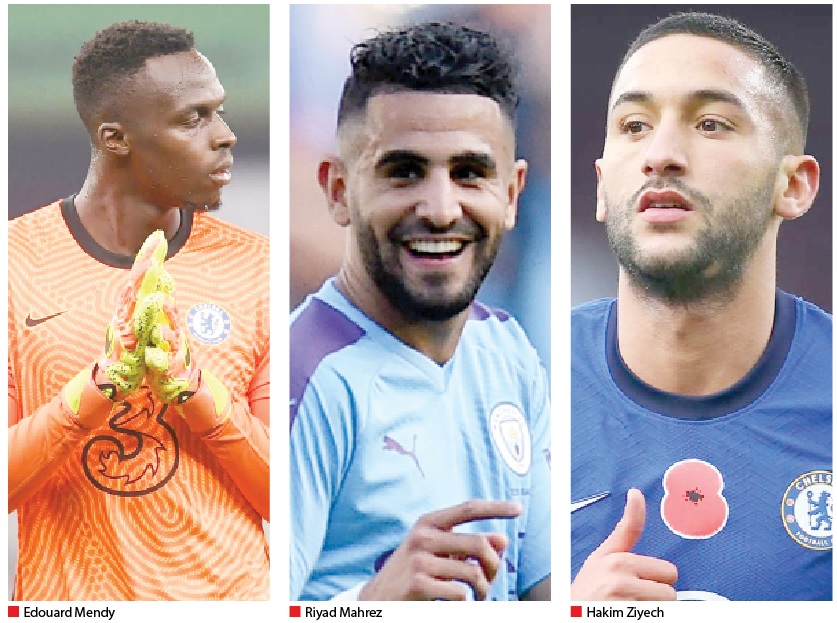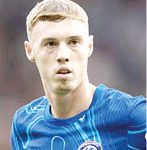Without doubt, enthusiastic football fans in Nigeria are eagerly awaiting tonight’s finals of the 2020/2021 UEFA Champions League finals to be contested between two English clubs, Manchester City and Chelsea at the Estadio do Dragao, Porto in Portugal.
In view of the fact that the UEFA Champions League is one of the world’s biggest football competitions only next to the FIFA World Cup and the Olympics football event, there is increasing level of expectations as the giants of the English Premier League get set to tussle for the prestigious diadem.
- JUSUN strike: Lawyers resort to taxi driving, farming
- The rising cases of abduction: A new type of business?
While Manchester City are yet to win the Champions League title, Chelsea won their first and only title so far in 2012. Therefore, even as football pundits have tipped City who have just won their seventh Premiership title to win tonight, Chelsea will be coming into the contest with better credentials. They are former champions.
However, while Thomas Tuchel who leads the Chelsea technical crew is yet to taste Champions League victory, his opponent in the Manchester City dugout, Pep Guardiola is a two time winner. He won it in 2009 and 2010 with Barcelona.
Therefore, there is so much to expect from the actors who will be out there on the field of Estadio do Dragao in Porto and the men in charge of the technical areas.
Interestingly, even as both contestants parade only three African players in Riyad Mahrez (Algeria, Manchester City), Hakim Ziyech (Morococo, Chelsea) and Edourad Menday (Senegal, Chelsea) Africans’ interest in the finals has dropped.
Here in Nigerian where Chelsea and Manchester City enjoy a large following from passionate football fans, expectations have reached feverish point, leading to interesting re-alignments.
Fans of those European clubs that were eliminated from the Champions League at different stages have re-aligned themselves with either Chelsea or Manchester City based on divergent interests.
Consequently, the finals is one of the most discussed topics in sporting circles in Nigeria at the moment as fans of the Premiership clubs continue to predict what would be the final result.
However, while almost everyone is waiting to savour the football artistry that is possibly going to be on display, some pundits are worried by the increasing decline in the number of African players in the finals of one of the biggest football competitions on earth.
Going by the history of the UEFA Champions League, only 24 African footballers have contested and won the trophy with their European clubs. Sadly African football legends like Liberia’s George Weah who was voted World Footballer of the year in 1995, Nigeria’s Rashidi Yekini, Egypt’s Mohamed Aboutrika, Roger Mila of Cameroon, Jay-Jay Okocha, Sunday Oliseh, Taribo West and Victor Ikpeba of Nigeria, Rigobert Song of Cameroon and Hassam Hassan of Egypt failed to win the Champions League despite their football prowess.
Although Mo Salah (Egypt), Sadio Mane (Senegal), Joel Matip (Cameroon) and Naby Keita (Guinea) were on the big stage when Liverpool won their 6th UEFA Champions League title in 2019, the first African to have won the trophy was Bruce Grobbelaar of Zimbabwe. He achieved the feat in 1984 with Liverpool.
He was followed by Algerian legend Rabah Madjer who won it with FC Porto in 1987 and Abedi Pele (Ghana) in 1993 with Olympique Marseille before Nigeria’s duo of George Findi and Nwankwo Kanu lifted it with Ajax Amsterdam in 1995.
It is also on record that Geremi Njitap of Cameroon was the first African to win the title twice in 2000 and 2002 with Spanish giants Real Madrid before Samuel Eto’o of Cameroon won it thrice with Barcelona 2006, 2009 and 2010 with Inter Milan.
Other African winners of the highly coveted trophy are Ibrahim Tanko (Ghana) Borussia Dortmund 1997, Samuel Kuffour (Ghana) Bayern Munich 2001, Benni McCarthy (South Africa) FC Porto 2004, Djimi Traore (Mali) Liverpool 2005, Yaya Toure (Cote d’Ivoire) Barcelona 2009 & 2011, Seydou Keita (Mali) Barcelona 2009 & 2011, Sully Muntari (Ghana) Inter Milan 2010 and McDonald Mariga (Kenya) 2010.
John Mikel Obi (Nigeria), Michael Essien (Ghana), Salomon Kalou (Cote d’Ivoire), Didier Drogba (Cote d’Ivoire) who won it with Chelsea in 2012 and Achraf Hakimi (Morocco), with Real Madrid 2018 complete the list of Africans who have won the UEFA Champions League.
Coming closer home, the last time a Nigerian won the trophy was in 2012 when Mikel Obi was among the quartet of Africans who lifted it with Chelsea at the expense of Bayern Munich.
After that achievement by the former captain of the Super Eagles, Nigeria has seen the rise of other immensely talented players like Ahmed Musa, Wilfred Ndidi, Kelechi Iheanacho, Alex Iwobi, William Troost-Ekong, Leon Balogun, Ola Aina, Isaac Success, Chigozie Awaziem, Tyrone Ebuehi, Moses Simon and lately Victor Osimhen but none is yet to feature in the finals of Europe’s biggest club competition.
The reason for this is not farfetched. The competition is dominated by the top five clubs in Europe, Real Madrid, Bayern Munich, Barcelona, Manchester United and Liverpool. Unfortunately, Nigerian players have over the years failed to get into these highly rated European clubs.
It is, therefore, the hope of Nigerian football stakeholders that in no distant future the new generation of players will break all barriers and begin to play for clubs that have potential to win the UEFA Champions League.
If this fails, then football fans in Nigeria will continue to live with the agony of watching finals of the UEFA Champions League come and go without the presence of any Nigerian player.
As Nigerians wait for the next Super Eagles player who will rise to the pinnacle of European club competition the way Find George, Nwankwo Kanu did with Ajax in 1995 and Chelsea’s Mikel Obi in 2012, the 2021 all English clubs finals is a few hours away.
In the end, victory will go to either the Manchester club who are in the hunt for their first title or the Londoners who are primed for a second title and the most watched football league in the world, the English Premiership will be the ultimate winner.

 Join Daily Trust WhatsApp Community For Quick Access To News and Happenings Around You.
Join Daily Trust WhatsApp Community For Quick Access To News and Happenings Around You.


